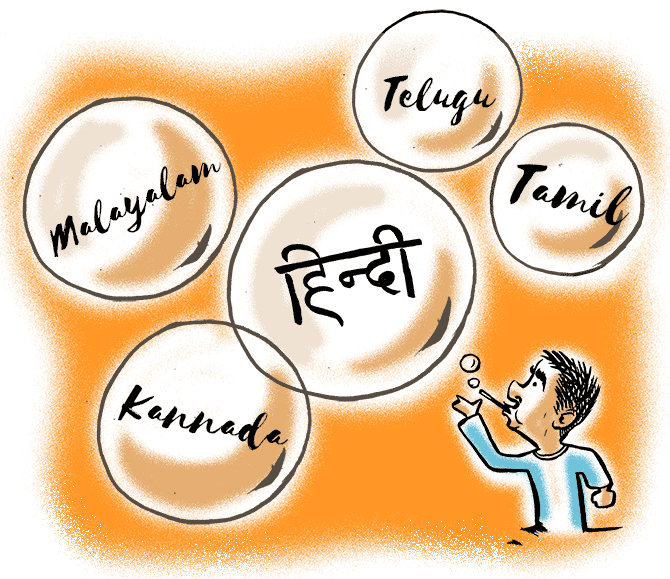The Union Cabinet on Thursday approved conferring classical language status to Marathi, Pali, Prakrit, Assamese and Bengali languages.

The decision was taken at a meeting of the Union Cabinet chaired by Prime Minister Narendra Modi.
"This is a historical decision and it goes very well with Prime Minister Narendra Modi and the NDA government's philosophy of taking pride in our culture, taking pride in our heritage and taking pride in all the Indian languages and the rich heritage that we have," Information and Broadcasting Minister Ashwini Vaishnaw said at a cabinet briefing.
Classical languages serve as a custodian of Bharat's profound and ancient cultural heritage, embodying the essence of each community's historical and cultural milestone, the government said.
In a statement, it said the inclusion of Marathi, Pali, Prakrit, Assamese and Bengali in the classical language category will create significant employment opportunities, particularly in academic and research fields.
Additionally, the preservation, documentation and digitisation of ancient texts of these languages will generate jobs in archiving, translation, publishing and digital media, the government said.
The primary states involved are Maharashtra (Marathi), Bihar, Uttar Pradesh and Madhya Pradesh (Pali and Prakrit), West Bengal (Bengali) and Assam (Assamese), while the broader cultural and academic impact will extend nationally and internationally, the statement said.
On October 12, 2004, the Government of India decided to create a new category of languages as "classical languages", declared Tamil a classical language and set criteria for according the status.
These criteria were -- high antiquity of its early texts or recorded history over a thousand years, a body of ancient literature or texts which is considered a valuable heritage by generations of speakers, and literary tradition must be original and not borrowed from another speech community.
Sanskrit, Telugu, Kannada, Malayalam and Odia were later given the classical language status.
A Linguistic Experts Committee was constituted under Sahitya Akademi by the Ministry of Culture in November 2004 to examine the proposed languages for the classical language status. The criteria were revised in November 2005.
About the inclusion of Marathi in this category, the statement said a proposal was received from the Maharashtra government in 2013, requesting classical language status to Marathi and it was forwarded to the LEC.
The LEC recommended Marathi for classical language status.
Assembly elections in Maharashtra are slated to take place soon and this is a major poll issue in the state.
During inter-ministerial consultations in 2017 on the draft note for Cabinet for conferring classical status to the Marathi language, the Home Ministry advised that the criteria be revised and made stricter.
The PMO, vide its comment, said an exercise may be conducted to find out how many other languages are likely to become eligible.
In the meantime, proposals were also received from Bihar, Assam and West Bengal to confer classical language status to Pali, Prakrit, Assamese and Bengali.
Accordingly, the LEC, under Sahitya Akademi, in a meeting on July 25, 2024, unanimously revised the criteria. Sahitya Akademi has been appointed as the nodal agency for the LEC.
The committee recommended Marathi, Pali, Prakrit, Assamese and Bengali languages to be fulfilling the revised criteria and be considered as a Classical Language, the statement said.
The Education Ministry has taken various steps to promote classical languages. Three central universities were established in 2020 through an Act of Parliament for the promotion of Sanskrit language, it added.
The Central Institute of Classical Tamil was set up to facilitate the translation of ancient Tamil texts, promote research and offer courses for university students and language scholars. To further enhance the study and preservation of Classical Languages, the Centres for Excellence for Studies in Classical Kannada, Telugu, Malayalam, and Odia were established under the auspices of the Central Institute of Indian Languages in Mysuru.










 © 2025
© 2025